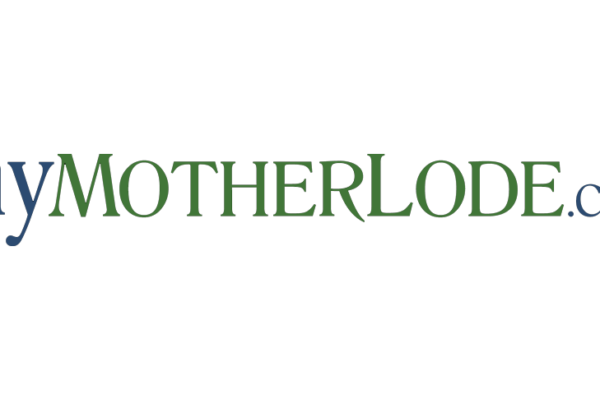
The new property tax revolt: No taxation without consent
California citizens have long faced challenges in combating inflation, particularly when it comes to rising property taxes. While inflation itself is largely a government failure to stabilize prices, homeowners have found ways to protect themselves from inflationary increases in property taxes. One of the most significant measures in this regard is Proposition 13.
### Proposition 13: A Shield Against Inflationary Property Taxes
Proposition 13 fixed the millage rate and capped annual increases in the assessed value of homes. Importantly, it also required voter approval for any increase in the millage rate. Since its enactment, Proposition 13 has saved California residents billions of dollars in property taxes. Its success has inspired similar initiatives in other states, becoming the gold standard for fiscal rules designed to protect homeowners from inflation-driven tax hikes.
### A New Property Tax Revolt Across the U.S.
Today, across the United States, we are witnessing a resurgence of the property tax revolt reminiscent of the movement triggered by Proposition 13 in the 1970s. With double-digit inflation rates once again placing heavy burdens on homeowners, citizens are questioning why they must bear inflationary increases in property taxes. Many ask why local governments should benefit from a windfall in property tax revenues simply because the federal government has failed to maintain stable prices.
### Lessons Learned from the First Property Tax Revolt
Since the first property tax revolt, much has been learned about effective fiscal policy. The most important lesson: fiscal rules like Proposition 13 can effectively protect homeowners from inflation-related increases in their property taxes—taxes that no one ever directly voted on.
Citizens continue to seek relief through both legislative channels and direct democracy initiatives such as referenda. However, experience shows that fiscal rules crafted solely by legislatures often fail due to the influence of special interests. By contrast, the most effective fiscal protections for homeowners have been those designed and enacted by citizens themselves through direct democratic processes.
### Models for Modern Fiscal Rules
The current wave of property tax resistance looks to Proposition 13 in California and the Taxpayer Bill of Rights (TABOR) in Colorado as models. Both were designed and passed by citizens via the initiative process. With such fiscal rules in place, citizens gain the power to decide how much they are willing to pay in taxes.
In many jurisdictions, this approach has sent a clear message to elected officials: voters are rejecting tax hikes and government debt increases.
### Democrats Should Be Wary of the Redistribution Rabbit Hole
During my time on the Colorado Tax Commission, we conducted a survey of citizen attitudes toward taxation. The majority expressed the belief that governments waste much of their revenue, particularly at the national level. Many feel that government is too large, too expensive, and too intrusive in their daily lives.
This sentiment underscores the banner of the new property tax revolt: “No taxation without consent.” It should be up to citizens—not elected officials or special interests—to decide how much they are willing to pay in taxes.
If any jurisdiction wishes to increase taxes, enact new taxes, or issue debt, such decisions should require voter approval.
—
By empowering citizens and emphasizing fiscal responsibility, direct democracy initiatives like Proposition 13 and TABOR exemplify effective strategies to curb inflation-driven property tax increases and promote accountable government spending.
https://www.washingtonexaminer.com/restoring-america/faith-freedom-self-reliance/3888614/no-taxation-without-consent/
You may also like
更多推荐
You may be interested
Globe bets on prepaid fiber, sets expansion
No content was provided to convert. Please provide the text...
Bragging rights up as Samal makes 5150 debut
A stellar Open division field will be shooting for the...
DigiPlus launches P1-M surety bond program
MANILA, Philippines — DigiPlus Interactive Corp. has partnered with Philippine...
 The New York Times
The New York Times
- NASA to Begin Space Station Medical Evacuation: What to Know 2026 年 1 月 14 日 Kenneth Chang
- Can A.I. Generate New Ideas? 2026 年 1 月 14 日 Cade Metz
- Mary Peltola Puts Alaska in Play for Democrats 2026 年 1 月 14 日 Michelle Cottle
- Judge Puts Off Ruling on Minnesota’s Request to Block ICE Surge 2026 年 1 月 14 日 Mitch Smith
- Supreme Court Sides With Conservative Congressman in Illinois Election Rules Challenge 2026 年 1 月 14 日 Abbie VanSickle
- Iran Plans to Execute Erfan Soltani as Trump Threatens ‘Strong Action’ 2026 年 1 月 14 日 Abdi Latif Dahir and Sanam Mahoozi
- F.B.I. Searches Home of Washington Post Journalist in a Leak Investigation 2026 年 1 月 14 日 Benjamin Mullin, Devlin Barrett, Charlie Savage and Erik Wemple
- Can the ICE Agent Who Shot Renee Good in Minneapolis Be Prosecuted? 2026 年 1 月 14 日 Shaila Dewan and Jonah E. Bromwich
- Tony Dokoupil’s Road Trip on CBS News Hits a Rough Patch 2026 年 1 月 14 日 James Poniewozik
- 2026 May Be the Year of the Mega I.P.O. 2026 年 1 月 14 日 Erin Griffith and Lauren Hirsch



Leave a Reply